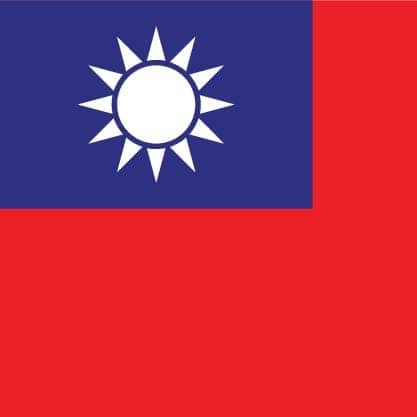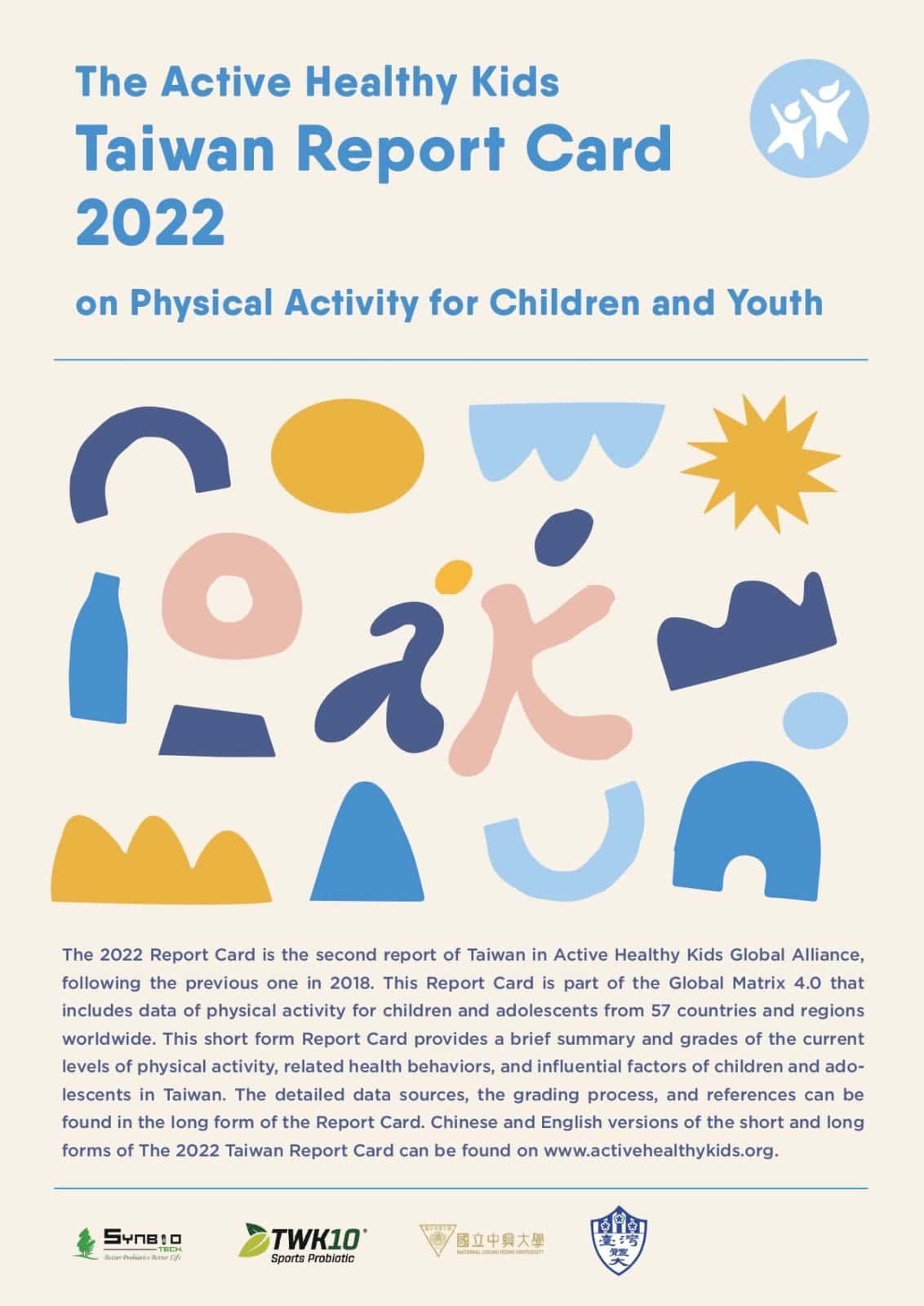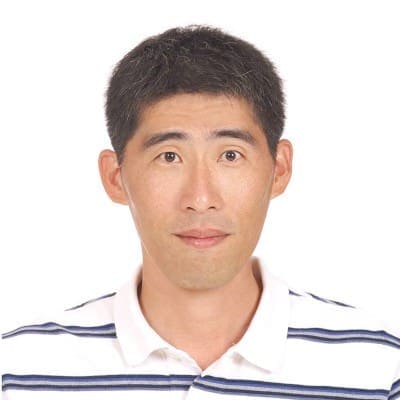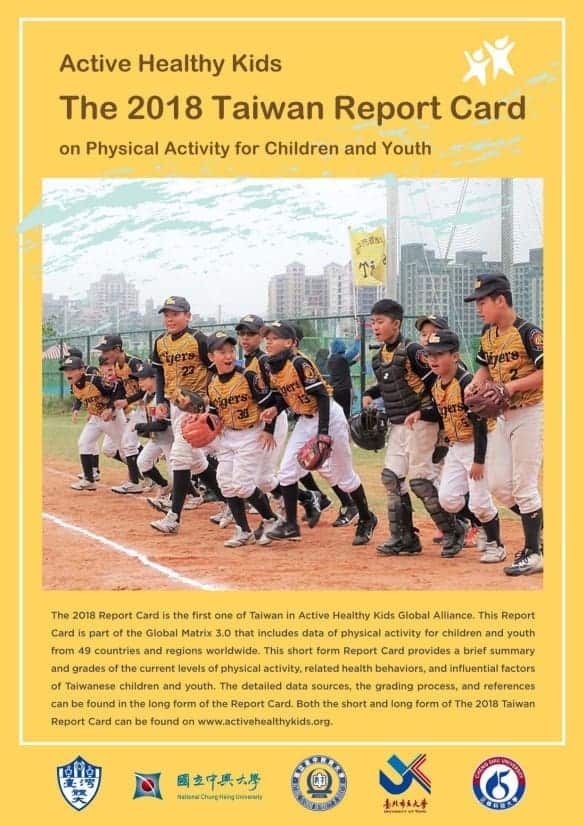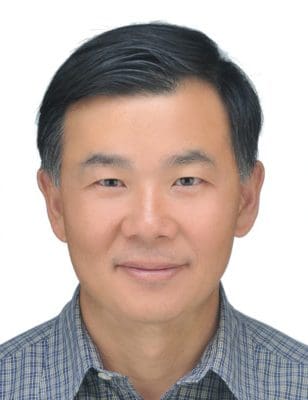
Report Card Leaders
Chin-Lin Wu, PH.D.
Professor Ching-Lin Wu is a faculty member at the Graduate Institute of Sport and Health Management, National Chung Hsing University. He holds a Bachelor’s degree in Nutrition from Fu-Jen Catholic University, a Master’s degree in Sport Science from National Taiwan Sport University, and a Ph.D. in Sport Science from Loughborough University in the UK. Professor Wu currently serves on the board of several academic societies, including the Taiwan Society of Physical Activity and Exercise Science (TPAES), Taiwan Precision Child Health Association (TPCHA), and Taiwan Society of Sport Nutrition (TSSN). His research interests focus on sport/exercise nutrition, exercise physiology, and the relationships between physical activity and health.
Chen-Kang, PH.D.
Professor Chen-Kang Chang is the Vice President of National Taiwan University of Sport. He holds a Bachelor’s degree in Chemistry and a Master’s degree in Biochemistry from National Taiwan University. He earned his Ph.D. in Nutrition from The Ohio State University. Currently, he serves as the President of the Taiwan Society of Physical Activity and Exercise Science and is a board member of the Taiwan Society of Sport Nutrition. Additionally, he serves on the Sports Medicine and Anti-Doping Committee of the Chinese Taipei Paralympic Committee. Professor Chang’s research interests include sport nutrition, physical activity and health, exercise physiology, and sport performance analysis. He has also provided consultation on sport nutrition to numerous Taiwanese athletes who participated in the Olympic and Asian Games.
Report Card Grades
- Overall Physical Activity: F
- Organized Sport and Physical Activity: D-
- Active Play: F
- Active Transportation: C-
- Sedentary Behavior: D+
- Physical Fitness: INC
- Family and Peers: D-
- School: A-
- Community and Environment: A-
- Government: B+
Related Links
Report Card Leaders
Ching-Lin Wu, Ph.D.
Professor Ching-Lin Wu obtained a Bachelor degree in Nutrition from Catholic Fu-Jen University and a Master degree in Sport Science from National Taiwan Sport University. He received the Ph.D. in Sport Science from Loughborough University in the UK. Dr. Ching-Lin Wu is the Chair of Taiwan Society of Physical Activity and Exercise Science (TPAES) and Professor of the Graduate Institute of Sport and Health Management at National Chung Hsing University. Professor Ching-Lin Wu’s research interest is in the areas of sport nutrition, exercise physiology, and physical activity and health.

Chen-Kang Chang, Ph.D.
Professor Chen-Kang Chang has a Bachelor degree in Chemistry and a Master degree in Biochemistry from National Taiwan University. He received the Ph.D. in Nutrition from the Ohio State University. Dr. Chang is the Vice President and Dean of Research and Development in National Taiwan University of Sport. Dr. Chang has published dozens of scientific papers in the areas of sport nutrition, exercise physiology, and physical activity and health. Dr Chang has also served as a member of National Committee of Sport Science, providing nutritional support for Taiwanese athletes who participated in several Olympics and Asian Games.
Report Card Grades
- Overall Physical Activity: F
- Organized Sport and Physical Activity: D-
- Active Play: INC
- Active Transportation: C-
- Sedentary Behavior: C-
- Physical Fitness: B-
- Family and Peers: INC
- School: B+
- Community and Environment: B+
- Government: B+
Top Three Priorities
- Provide more organized sport opportunity in the community to compensate for the small number of school teams and clubs. These programs may take advantage of the physical activity infrastructure in schools. Non-traditional or modified sports should be included to attract those who are at greater risk for physical inactivity, such as girls and youth with disabilities.
- Raise awareness of the importance of physical activity in long-term physiological and psychological health, as well as academic achievement, among parents.
- Promote active play, especially in young children, by providing more, better and safer infrastructure.
Report Card Leaders
Testimonial
"It has been a pleasure to become part of the global community in promoting physical activity in children and youth. There is nothing more rewarding than seeing the smile on children’s face when they are participating in physical activity and sport. Together we can make the world healthier and happier." - Chen-Kang Chang, Ph.D. and Ching-Lin Wu, Ph.D.
Conference Abstract: Movement to Move
Results from Chinese Taipei (Taiwan)’s 2018 Report Card on Physical Activity for Children and Youth
Chen-Kang Chang1,*, Ching-Lin Wu2
1Department of Sport Performance, National Taiwan University of Sport, Taichung, Taiwan. 2Graduate Institute of Sports and Health Management, National Chung Hsing University, Taichung, Taiwan.
Correspondence: Chen-Kang Chang (wspahn@seed.net.tw)
Introduction Recent national surveys in Taiwan revealed that a large proportion of children and youth did not have sufficient physical activity.
Methods
The 2018 Chinese Taipei (Taiwan) Report Card included 9 core indicators that are common to the Global Matrix 3.0. The best available data from 2010 to 2018 were consolidated.
Results
The grades for the 2018 Chinese Taipei Report Card are provided in Table 1. The overall physical activity in children and adolescents is poor (F). The participation of sport teams and clubs in schools is low (D-) while the sedentary behaviour is abundant (C-). The fitness level is somewhat reasonable (B-) when comparing to the current norm established in 2011. The government has recognized the issue of insufficient physical activity and developed corresponding policy (B+). The physical education system and physical activity infrastructure from elementary schools to senior high schools are somewhat adequate (B+). More than 70% schools have adopted Sport & Health 150 (SH150) project which aims to reach 150 min physical activity per week in schools, excluding regular physical activity classes. The teenagers seem to be satisfied with physical activity infrastructure in the community (B+). There is no available nationwide high-quality data for active play and family and peers.
Conclusion It seems that, despite the great effort by the government and schools, physical activity and fitness levels are still low while sedentary behaviour remains high. The missing link may be the influence of family and peers, which warrant future research.
Table 1: Grades for Chinese Taipei (Taiwan)’s 2018 Report Card
| Indicator | Grades |
| Overall Physical Activity | F |
| Organized Sport Participation | D- |
| Active Play | INC |
| Active Transportation | C- |
| Sedentary Behaviors | C- |
| Physical Fitness | B- |
| Family and Peers | INC |
| School | B+ |
| Community and Environment | B+ |
| Government | B+ |



